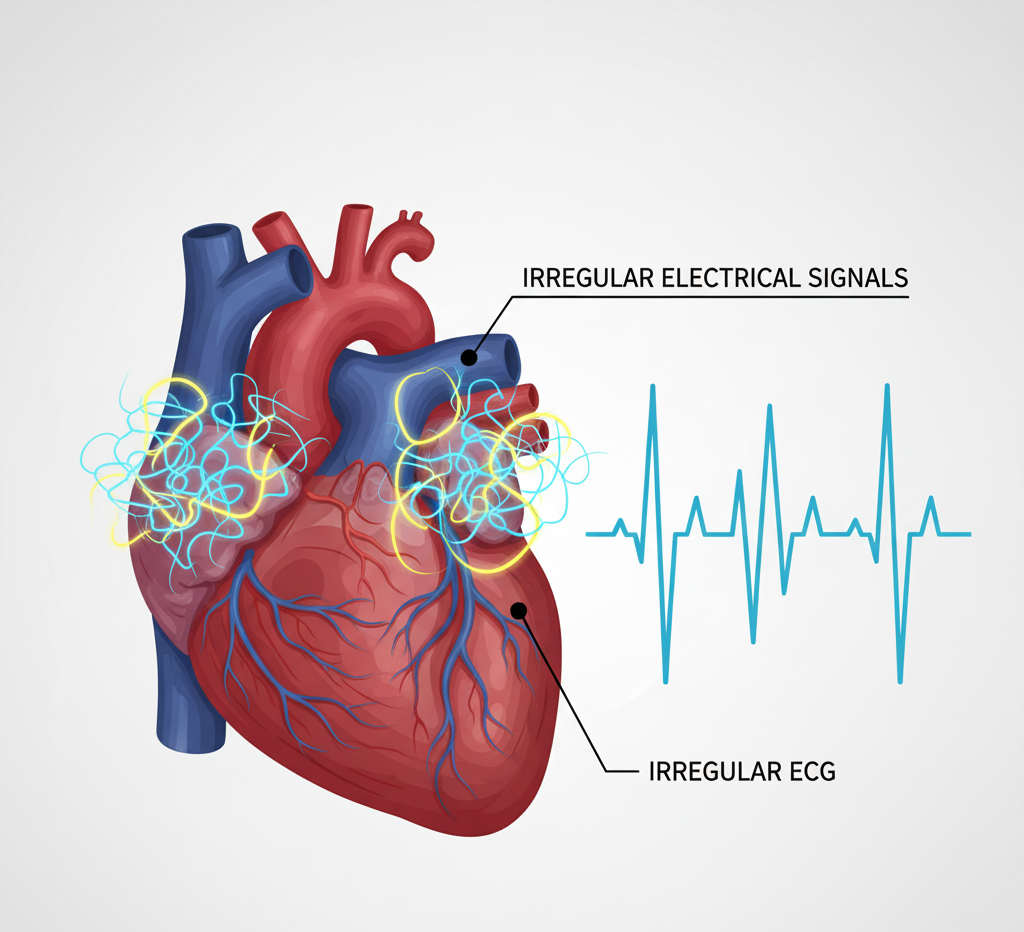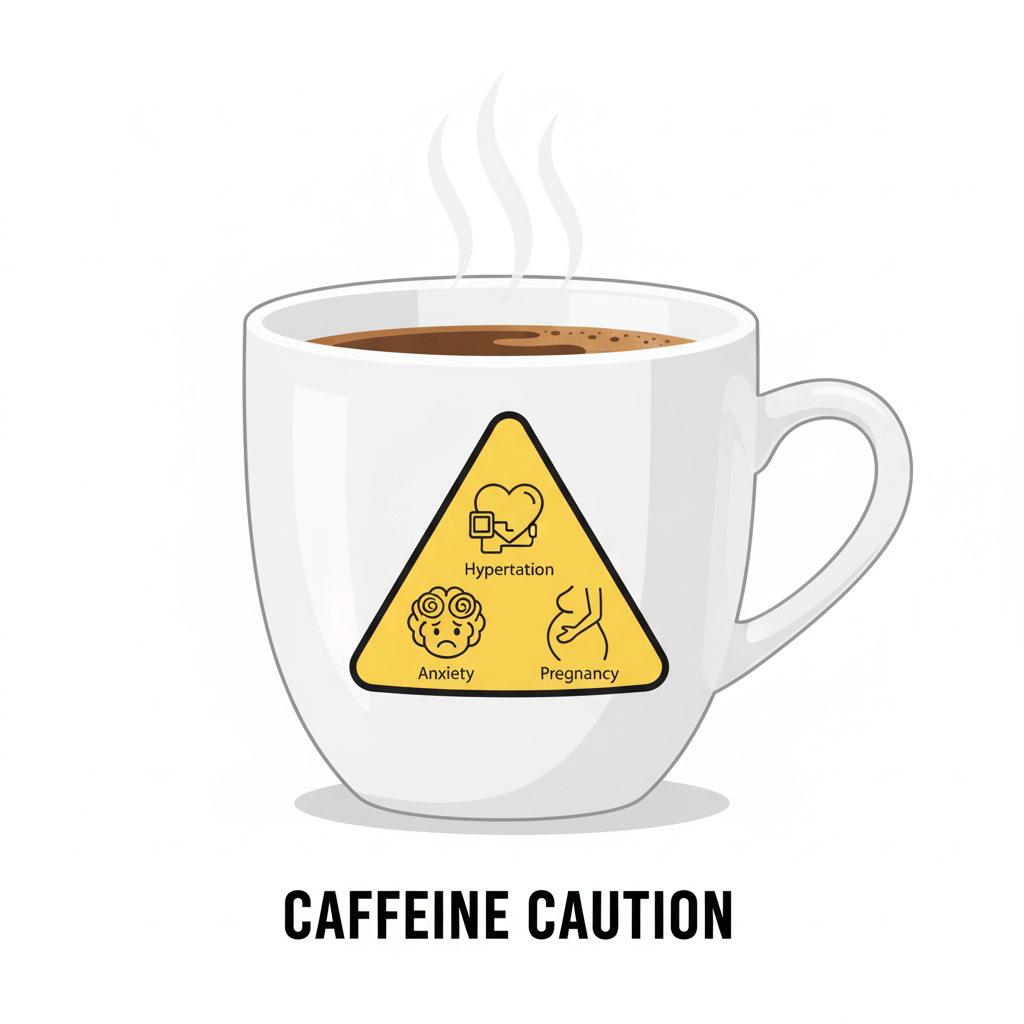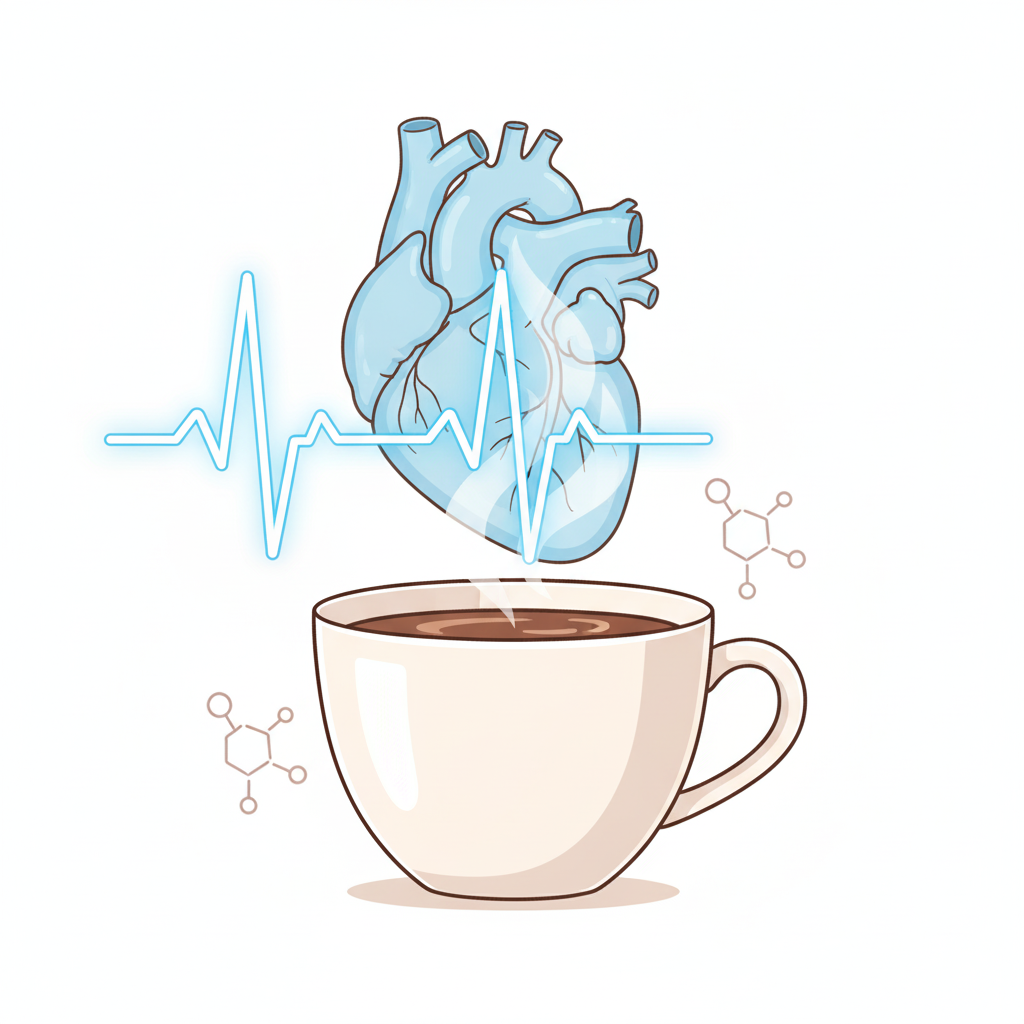Introduction
Atrial fibrillation (AF or AFib) is one of the most common heart rhythm disorders in the world, including in India. It causes irregular and often rapid heartbeats, increasing the risk of stroke, heart failure, hospitalization, and avoidable complications. One major concern for people who’ve had an AF episode is recurrence — the return of abnormal heart rhythm after initial treatment.
Recently, surprising new research indicates that drinking coffee may cut the recurrence of atrial fibrillation by nearly 40%. This finding challenges long-standing beliefs that people with AF should avoid caffeine or limit coffee intake. Researchers are exploring whether coffee’s natural compounds — including antioxidants and anti-inflammatory agents — may help stabilize heart rhythm.
This blog explains what the study means, how coffee affects the heart, who can benefit from moderate coffee intake, potential risks, lifestyle tips, and 50 FAQs.

Understanding Atrial Fibrillation
Atrial fibrillation is an irregular heartbeat that begins in the upper chambers of the heart (atria). Instead of beating steadily, the heart quivers or flutters. This causes:
-
Fatigue
-
Shortness of breath
-
Palpitations
-
Chest discomfort
-
Lightheadedness
AF can be temporary (paroxysmal), persistent, or long-term. The biggest dangers are:
-
Stroke
-
Blood clots
-
Sudden cardiac complications
Preventing recurrence is essential for long-term heart health.
What the New Study Says About Coffee and AF Recurrence
According to recent data, individuals who consumed moderate amounts of coffee (1–2 cups per day) experienced up to 40% reduction in atrial fibrillation recurrence compared to those who avoided coffee.
Researchers believe the benefits may come from:
-
Antioxidants in coffee reducing inflammation
-
Improved blood vessel function
-
Reduced oxidative stress
-
Enhanced heart electrical stability
-
Improved metabolism
-
Better weight and blood sugar control
This new evidence challenges old guidelines that suggested caffeine could trigger heart rhythm abnormalities.
ALSO READ: Scientists Discover A Missing Link Between Hormones, Dopamine, And Learning
How Coffee May Protect Against AF Recurrence
1. Anti-inflammatory effects
Chronic inflammation affects the heart’s electrical pathways. Coffee contains polyphenols that help reduce inflammation.
2. Antioxidant Properties
Antioxidants protect heart cells from oxidative stress — a known trigger for rhythm problems.
3. Improved Vascular Function
Coffee improves endothelial function, which supports smooth blood flow.
4. Stabilizing Electrical Activity
Some compounds in coffee may help regulate the heart’s electrical signals, reducing erratic rhythm.
5. Weight and Metabolic Support
Coffee may improve metabolism and reduce obesity-related AF risks.
6. Improved Mood and Stress Levels
Stress and anxiety worsen AF; coffee may enhance focus and reduce mental fatigue.
How Much Coffee Is Safe?
The study indicates benefits with 1–2 cups per day, depending on:
-
Age
-
Tolerance
-
Existing heart conditions
-
Caffeine sensitivity
People who regularly drink coffee tend to tolerate caffeine better than those who rarely do.
Who Should Be Cautious with Coffee?

Even though coffee may reduce AF recurrence for many, some individuals MUST be cautious:
-
People with uncontrolled hypertension
-
Individuals with caffeine sensitivity
-
Pregnant women
-
People with severe arrhythmias other than AF
-
Individuals with severe acidity or GERD
-
Anyone whose doctor advised caffeine restriction
Patients on certain medications also require consultation.
Symptoms of Atrial Fibrillation
Watch for:
-
Rapid heartbeat
-
Fluttering or pounding sensation
-
Dizziness
-
Shortness of breath
-
Fatigue
-
Chest discomfort
-
Irregular pulse
If symptoms worsen after coffee, it may indicate sensitivity.
Diagnosis of AF
Testing may include:
-
ECG (Electrocardiogram)
-
Holter monitoring
-
Echocardiography
-
Blood tests
-
Stress test
Proper diagnosis ensures proper treatment.
Standard Treatment Options for AF
AF treatments aim to prevent:
-
Stroke
-
Clots
-
Heart complications
-
Recurrence
Common treatments include:
-
Medications (rate-control, rhythm-control)
-
Anticoagulants
-
Cardioversion
-
Catheter ablation
-
Lifestyle modifications
Coffee may support heart health but does not replace medical therapy.
Lifestyle Changes for Recurrence Reduction
-
Maintain healthy weight
-
Reduce alcohol
-
Manage stress
-
Exercise regularly
-
Eat heart-friendly foods
-
Sleep well
-
Reduce salt intake
-
Control diabetes and BP
Moderate coffee fits well into a heart-healthy lifestyle.
Foods That Support Heart Rhythm
-
Leafy greens
-
Bananas (potassium)
-
Berries
-
Oats
-
Nuts and seeds
-
Olive oil
-
Garlic
-
Fatty fish (omega-3)
A healthy diet reduces AF recurrence risk.
Foods to Avoid for AF Patients
-
Deep fried foods
-
Fast food
-
Excessive alcohol
-
Processed meats
-
High-salt items
-
Excess sugar
-
Artificial sweeteners (in excess)
-
Energy drinks
These increase inflammation and disrupt heart rhythm.
Prevention Tips
-
Stay hydrated
-
Sleep 7–8 hours
-
Reduce caffeine if sensitive
-
Avoid smoking
-
Maintain regular physical activity
-
Limit stress with yoga or meditation
-
Avoid binge eating
-
Take medicines on time

When to See a Doctor
Seek medical help if you experience:
-
Persistent rapid heartbeat
-
Chest pain
-
Severe breathlessness
-
Fainting
-
Swelling in legs
-
New or worsening symptoms
-
Heart rate over 120 bpm at rest
Immediate care can prevent severe complications.
Risks and Complications of Atrial Fibrillation
If untreated, AF can cause:
-
Stroke
-
Heart failure
-
Blood clots
-
Cognitive decline
-
Kidney issues
-
Chronic fatigue
Controlling recurrence is key.
50 FAQs About Coffee and Atrial Fibrillation Recurrence
-
Does coffee really reduce AF recurrence?
New research shows up to 40% reduction with moderate coffee intake. -
How much coffee is beneficial?
1–2 cups daily for most people. -
Can caffeine trigger AF?
In some sensitive individuals, yes. -
Is decaf coffee helpful?
Decaf may still offer antioxidants but less effect on metabolism. -
Should all AF patients drink coffee?
Consult a doctor; benefits vary. -
Does instant coffee have the same benefit?
It may, but brewed coffee is better. -
Is black coffee better?
Yes, it avoids sugar and cream that affect heart health. -
Can coffee replace medicines?
No, it’s an add-on benefit. -
Does coffee prevent strokes?
Coffee helps heart health but does not replace anticoagulants. -
What about caffeine tablets?
Not recommended for AF patients. -
Can green tea help AF?
Yes, it contains antioxidants. -
Can too much coffee be harmful?
Yes, it can raise heart rate. -
Does milk in coffee reduce benefits?
No major reduction. -
Should older adults drink coffee?
Yes, if tolerated. -
Can coffee cause palpitations?
In some people, yes. -
Is filter coffee healthier?
Yes, compared to sugary variants. -
Does coffee improve blood flow?
Yes, it supports vascular function. -
Is cold coffee good?
Yes, if low in sugar. -
Can coffee help rhythm control?
Possibly in moderate intake. -
Does coffee reduce inflammation?
Yes, due to polyphenols. -
Does sugar in coffee affect AF?
Excess sugar is not recommended. -
Can AF patients drink tea?
Yes, but moderation is key. -
Is caffeine addiction harmful?
Yes, dependence can worsen symptoms. -
Does caffeine dehydrate?
Not significantly at moderate levels. -
Can coffee reduce fatigue from AF?
It may help mildly. -
Are there heart-friendly coffee types?
Black coffee, filter coffee, brewed coffee. -
Is espresso safe?
Small amounts are fine. -
Can coffee affect sleep?
Yes, avoid at night. -
Does coffee raise blood pressure?
Mildly, in some people. -
Is coffee good for diabetic AF patients?
Yes, if sugar-free. -
Does coffee interact with AF medicines?
Generally safe; ask your doctor. -
Can I drink coffee after ablation?
After recovery, yes. -
Does decaf reduce AF recurrence?
Maybe, but less evidence. -
Can coffee reduce oxidative stress?
Yes. -
Is caffeine harmful for heart failure?
Limited amounts may be safe. -
Can coffee reduce clot risk?
Not significantly. -
Should I switch to green tea?
Both can be beneficial. -
Is caffeine-free coffee safer?
Good for sensitive individuals. -
Can coffee cause anxiety?
Yes, in some people. -
What time should AF patients avoid coffee?
After 5 PM to protect sleep. -
Is coffee ok for pregnant AF patients?
Limit to 1 cup; consult doctor. -
Can coffee help with mood?
Yes, it boosts alertness. -
Do doctors recommend coffee for AF?
Some do, moderation required. -
Can coffee lower weight?
Yes, it boosts metabolism. -
Does sugar-free coffee help rhythm?
Better than sugary coffee. -
Is caffeine good for athletes with AF?
Moderation is important. -
Can coffee lower inflammation?
Yes, significantly. -
Does coffee affect cholesterol?
Unfiltered coffee may. -
Can coffee cause digestive issues?
Sometimes. -
Is coffee safe long-term?
Yes, for most healthy individuals.
Conclusion
Coffee, once believed to worsen heart rhythm issues, is now showing promising benefits. Growing evidence suggests that moderate coffee consumption may reduce AF recurrence by nearly 40%, thanks to its powerful antioxidants, anti-inflammatory compounds, and heart-supportive effects.
However, coffee is not a substitute for medical treatment. Patients must continue prescribed medicines, follow lifestyle recommendations, and monitor symptoms carefully. With balanced habits, proper care, and smart nutrition, AF recurrence risk can be meaningfully reduced.
Quickobook CTA
Need heart advice?
Book a cardiologist instantly on Quickobook
Online + in-clinic consultations
Trusted heart specialists across India
Disclaimer
This blog is for educational purposes only. Always follow your doctor’s advice before altering diet or caffeine intake.










Comments (0)
No comments yet. Be the first to share your thoughts!
Leave a Comment